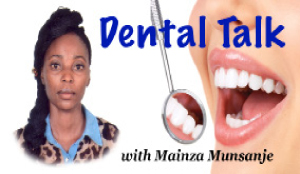 TODAY we tackle three most common changes that occur in the mouth during pregnancy.
TODAY we tackle three most common changes that occur in the mouth during pregnancy.
These are pregnancy gingivitis i.e. inflammation or swelling of the gums, pregnancy tumour or epulis, which is a growth on the gum and changes in salivary flow.
Hormonal changes in pregnancy trigger these changes that affect the teeth and gums.
Proper oral hygiene prior to and during pregnancy is of utmost importance as it can reduce the severity of effects of some of these changes in the mouth.
It’s advisable that pregnant women should maintain their regular, semi-annual checkups and consult a dentist if they notice any changes in their oral health.
Pregnancy gingivitis is a mild form of gum disease that is common during pregnancy.
Hormonal changes at the time of pregnancy lead to an increase in blood flow to the gums. Gingivitis is mainly caused by the presence of plaque on tooth surfaces, plaque is a colorless substance that forms on tooth surfaces and consists of germs, food debris.
In the presence of plaque and an increase in blood flow due to hormonal changes swelling of the gums occurs leading to gingivitis.
If you already have gingivitis, the condition is likely to worsen during pregnancy, if you have pregnancy gingivitis your gums will appear swollen, bleed easily.
Brushing your teeth thoroughly twice a day with fluoride toothpaste will help reduce plaque, as will flossing after at least once a day.
Religious care for the mouth before and during pregnancy helps reduce severity of gingivitis. If untreated, gingivitis can lead to periodontitis, a more serious form of gum disease which leads to lose shaking teeth and eventually their loss.
Occasionally, some pregnant women will develop a so called pregnancy tumour also known as a pregnancy epulis or pregnancy granuloma.
These are non cancerous growths that develop when swollen gums are irritated.
Typically this will occur in the second or third trimester, sometimes even appearing for the first time in the final month of the pregnancy.
A pregnancy epulis often appears a piece of pink fleshy meat attached to the rest of the gum. It is painless and often bleeds easily.
This growth is harmless tumour and does not have the potential to become cancerous.
However it can grow to large size and interfere with feeding, chewing and other oral hygiene practices see your dentist if this occurs.
These growths tend to resolve after child birth.
Hormonal changes can either cause an increase or reduction in salivary flow. Saliva is one of the primary defenses against tooth decay.
Saliva contains proteins and electrolytes that destroy and neutralize the acid produced by germs in our mouths.
It also contains the minerals calcium and phosphorus, which help to reminerlize and strengthen teeth. During pregnancy, saliva quality may decrease and this decreases the protective effect of saliva, it may also develop a lower pH or become more acidic.
This change has been shown to be associated with increased levels of tooth decay. Decreased saliva flow can cause dry mouth or Xerostomia. Some women experience the opposite problem of excessive salivation, or Pryalism.
Any of these changes in saliva may increase a woman’s susceptibility to tooth decay, so maintaining good oral hygiene habits becomes particularly important.
All in all diligent oral hygiene care should be practiced before and throughout the pregnancy,
Tips for a healthy mouth during pregnancy
* Brush your teeth with fluoridated toothpaste after breakfast and right before going to bed, if brushing causes morning sickness, rinse mouth with mouthwash, brush teeth as normally done with toothpaste
* Floss at least once a day using dental floss
* Use mouth wash at least once a day
* Don’t wait to experience any pain but visit your dentist for checkup frequently
* Chew on sugar free gum to stimulate salivary flow and cleanse mouth
* Good nutrition particularly rich in vitamin c and B12( fish, liver, milk, fruits and vegetables)
In ending out reading for today is a very common dental myth amongst mothers.
“One tooth is lost with every pregnancy” explanation to this is all the above oral changes that occur in our mouths can lead to tooth disease if good oral hygiene practices are not implemented before and during pregnancy.
Look out for more dental myths in the next article. Comments:nzamai@yahoo.co.uk






